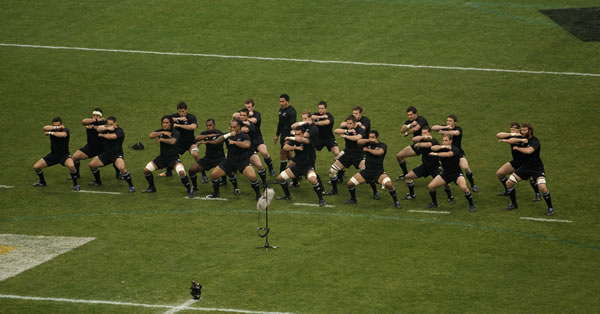A couple of weeks ago we discussed “the Maori in us all”. We made the point that when we New Zealanders are overseas looking back at New Zealand we value Maori culture, but struggle to do the same at home. When others look at us from afar, they clearly see that value too.
Last week’s TIME Magazine referred to the unique advantage the All Blacks get over opponents as a result of integrating aspects of Maori culture into their values. Specifically TIME referred to the haka and the concept of mana or humility wherein the members all see themselves as secondary to the ethos of the team. Mana is not a concept that comes naturally in European culture.
TIME magazine isn’t alone. Global online news sites have been piling accolades on New Zealand in recent weeks. Those entranced by the incomparable haka, performed by the All Blacks during the current rugby World Cup, include the Washington Post, the Atlantic, and the UK’s The Guardian.
The world’s media don’t just value the spectacle of the haka – nor its effectiveness as a pre-battle ritual– although both are important. The haka is seen as indicative of the lessons New Zealand can teach the world about building a society based on diverse cultures. The Washington Post’s Ishaan Tharoor said that the haka “in its growling intensity, captures … the solidarity of warriors—both of Māori and non-Māori descent—fighting for a common future.” The Atlantic said the All Black’s performance of the haka was a “heartening example of postcolonial cohesion”.
New Zealand is seen as being unique in the world, as having avoided the very worst outcomes for indigenous people in colonised countries. This relative success is due in no small part to the collective perspective and tradition of engagement and debate which characterises Maori society. If we have succeeded where others have failed it is because Maori ways of doing things were part of the solution from the very beginning.
Renowned designer David Trubridge settled in New Zealand in 1985. Having come over from the UK David clearly sees what is unique and most valuable about New Zealand. In our Talk Treaty series he noted that the multicultural nature of New Zealand society is one of its greatest riches, and this is true in particular of the Maori culture which is unique to New Zealand.
“the greatest thing New Zealand has, is the different [Maori] way of seeing things, telling our stories.…”
As New Zealanders of European origin increasingly acknowledge it is Maori values especially, as well as those from other cultures that have settled here, that make New Zealanders unique. The values that define New Zealand will continue to evolve and as they do so, our institutions will evolve also. The end game is a constitution which reflects and fully honours the Treaty of Waitangi.
1.Owain Jones, Multicultural New Zealand Has Melded Spirit and Skill to Create The Perfect Rugby Squad, TIME 17 September 2015

